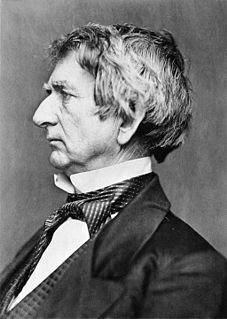A Quote by Sigmund Freud
Experience teaches that for most people there is a limit beyond which their constitution cannot comply with the demands of civilization. All who wish to reach a higher standard than their constitution will allow, fall victims to neurosis. It would have been better for them if they could have remained less "perfect".
Related Quotes
Upon the whole I doubt whether the Benefits of opposition to the Constitution opposition to the Constitution will not ultimately be productive of more good than evil; it has called forth, in its defence, abilities which would not perhaps have been otherwise exerted that have thrown a new light upon the science of government, It has given the rights of man a full and fair discussion, and explained them in so clear and forcible a manner, as cannot fail to make a lasting impression.
In explaining the Constitution, James Madison, the acknowledged father of the Constitution, wrote in Federalist Paper 45: 'The powers delegated by the proposed Constitution to the Federal government are few and defined. Those which are to remain in the State governments are numerous and indefinite. The former will be exercised principally on external objects, as war, peach, negotiation, and foreign commerce.' Has the Constitution been amended to permit Congress to tax, spend and regulate as it pleases or have Americans said, 'To hell with the Constitution'?
I used to say that the Constitution is not a living document. It's dead, dead, dead. But I've gotten better. I no longer say that. The truth is that the Constitution is not one that morphs. It's an enduring Constitution, not a changing Constitution. That is what I've meant when I've said that the Constitution is dead.
The Second Amendment is in the Constitution to help citizens protect themselves from people like Senator Dianne Feinstein who would come along, and if they could determine what words you can and cannot say, where and where you can't say them. The Constitution is there to protect you from mayors like Mike Doomberg who wants to tell you how big your beverage can be.
I wish the constitution, which is offered, had been made more perfect; but I sincerely believe it is the best that could be obtained at this time. And, as a constitutional door is opened for amendment hereafter, the adoption of it, under the present circumstances of the Union, is in my opinion desirable.
Does the U.S. Constitution stand for anything in an era of government excess? Can that founding document, which is supposed to restrain the power and reach of a centralized federal government, slow down the juggernaut of czars, health insurance overhaul and anything else this administration and Congress wish to do that is not in the Constitution?
The constitution regulates our stewardship; the constitution devotes the domain to union, to justice, to defense, to welfare, and to liberty. But there is a higher law than the constitution, which regulates our authority over the domain, and devotes it to the same noble purposes. The territory is a part, no inconsiderable part, of the common heritage of mankind, bestowed upon them by the Creator of the universe. We are his stewards, and must so discharge our trust as to secure in the highest attainable degree their happiness.
Are we reading the Constitution and pondering it? Are we aware of its principles? Are we abiding by these principles and teaching them to others? Could we defend the Constitution? Can we recognize when a law is constitutionally unsound? Do we know what the prophets have said about the Constitution and the threats to it?
Let's say tomorrow that there was a president, that we elected a president that eliminated the bulk collection of data. Let's just say it happened. What do you think would happen? People are like 'the sky would fall. We would be overrun with jihadists.' Maybe we could rely on the Constitution. Maybe we could get warrants. ... If you make the warrant specific, there's no limit to what you can get through a warrant.




































